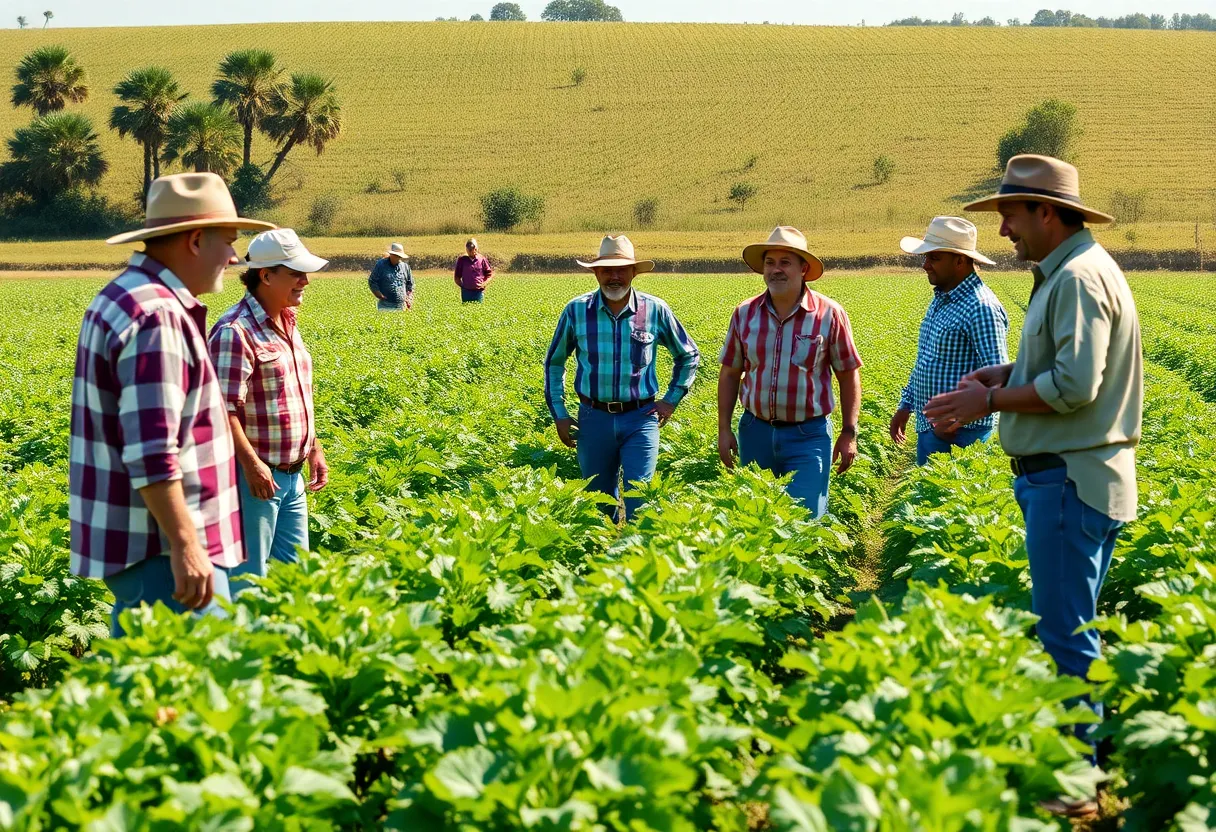News Summary
Cahoon Farms has secured New York’s first union contract for farmworkers that covers H-2A guest workers and year-round employees. Negotiated by the United Farm Workers (UFW), the contract promises better pay, safety measures, and job security. Key provisions include recall rights, retirement plans, and guaranteed time off. This contract marks a significant improvement in the working conditions of agricultural laborers, providing essential protections and setting a precedent for future labor negotiations in New York’s farming industry.
Cahoon Farms, New York – After nearly two years of negotiations, farmworkers at Cahoon Farms in New York have secured the state’s first established union contract specifically covering both seasonal H-2A guest workers and year-round employees. The United Farm Workers (UFW), a prominent national union representing agricultural workers, successfully negotiated the contract that guarantees significant benefits and protections for these essential laborers.
The contract guarantees pay above federal minimums, safety equipment, grievance processes, seniority protections, Just Cause for discipline and firings, and maintenance of existing benefits. One of the most notable provisions is the guarantee of recall rights, ensuring that H-2A workers who meet the employer’s performance expectations can return to the farm the following season without the previous uncertainties surrounding job security.
Additionally, the newly established agreement introduces important benefits, including retirement plans, paid holidays, and guaranteed time off for vacations and other necessary absences, which may include sick leave or bereavement.
H-2A visa holders are allowed to work in the U.S. for a maximum of ten months and must return to their home countries at the end of their designated work season. However, if requested by the employer, they may have the opportunity to return the following year. The introduction of this contract has been highlighted by farmworkers as a vital step in saving their jobs and providing assurance about their future employment at Cahoon Farms.
Amidst the positive developments, Cahoon Farms opted not to comment on the impact of the union contract. However, the agreement represents a significant milestone in improving working conditions for the labor force, particularly in terms of safety and workplace environmental standards. Previously, many H-2A workers reported being forced to accept substandard housing conditions provided by employers. Now, thanks to the union contract, these workers can express concerns and seek necessary improvements in their living conditions.
Moreover, farmers utilizing the H-2A program are mandated to provide inspected housing that complies with specific standards. With Cahoon Farms setting a precedent, ongoing negotiations for other H-2A worker unions are taking place across New York. The UFW currently holds certifications at nine different locations, indicating a growing movement towards improved labor rights in the agricultural sector.
The economic importance of the H-2A program cannot be understated. Farmers employing H-2A workers face significant financial consequences, estimated between $10,000 to $20,000, if an H-2A worker is not recalled for a subsequent work season. This adds to the complexities surrounding labor negotiations and the need for fair treatment of farmworkers who are integral to agricultural operations.
However, challenges persist regarding the treatment of older workers within the farming industry, with concerns raised over the practice of replacing seasoned workers with less experienced, younger laborers for efficiency gains. This issue highlights the ongoing tension between labor practices and economic considerations.
The U.S. Department of Labor has acknowledged the necessity for improved conditions for H-2A workers. Legal battles continue regarding the rights of these farmworkers to unionize, particularly amid a temporary pause on the enforcement of the Farm Laborers Fair Labor Practices Act, which was designed to grant collective bargaining rights. This pause was initiated following a lawsuit from growers who challenged the application of the act to H-2A workers.
Union organizers have emphasized the critical nature of fair treatment and dignity in the workplace, particularly given the vulnerabilities faced by H-2A workers who are significantly reliant on their sponsoring employers. The progress made at Cahoon Farms serves as a beacon for labor rights, yet the future of such protections for farmworkers across New York remains uncertain due to ongoing legal challenges from agricultural associations.
In summary, the establishment of a union contract for farmworkers at Cahoon Farms signifies a groundbreaking achievement in advancing labor rights within the agricultural sector in New York, potentially leading to further negotiations and improvements for H-2A workers in the state.
Deeper Dive: News & Info About This Topic
HERE Resources
Additional Resources
- Spectrum News: Farmworker Union Deal
- Wikipedia: Farm Labour in the United States
- Rochester Beacon: First Contract in New York
- Google Search: H-2A Worker Rights
- Jacobin: New York Growers Farmworkers Unionize
- Google Scholar: Farm Labor Unions in New York
- Documented NY: Labor Practices Act
- Encyclopedia Britannica: Farm Worker








